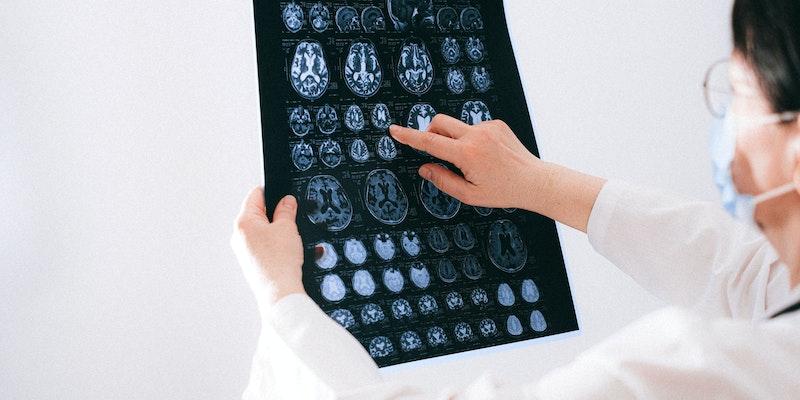Physicians have long studied and analyzed Schizophrenia, a complex mental illness. Hallucinations and cognitive issues can debilitate persons diagnosed. For individuals with a familial history of Schizophrenia, understanding the genetic implications is essential. This article explores whether Schizophrenia is genetic and what this means for families at risk.
Clarifying Schizophrenia
Schizophrenia's symptoms are severe and influence an individual's ideas, feelings, and actions. Hallucinations, delusions, and cognitive disturbances characterize this illness. This disorder impacts approximately 1% of the global population, illustrating the importance of disseminating essential facts about Schizophrenia to foster awareness and understanding.
Manifestation and Onset
Schizophrenia commonly unveils itself in late adolescence or early adulthood. The distinction in the age of onset is noticeable between genders, with males often experiencing symptoms earlier than their female counterparts. Acknowledging the early signs is fundamental for timely intervention, emphasizing the necessity of awareness regarding facts about Schizophrenia among both healthcare professionals and the general public.
Impact on Daily Life
The daily lives of individuals with Schizophrenia can be markedly disrupted due to the severe nature of the symptoms. The impact is extensive, from difficulties in maintaining relationships to challenges in pursuing education and employment. Thus, addressing the question, "Is schizophrenia genetic?" becomes vital to predict the potential risks and adopt preventive measures for individuals with a family history of this disorder.
Genetic Connection Of Schizophrenia
The inquiry into whether Schizophrenia is genetic has been the focal point of numerous scientific studies. Schizophrenia is considered to be 79% hereditary, according to a survey. This condition's development is not always caused by genetics.
Variability in Genetic Risk
The risk associated with genetic Schizophrenia is not uniform. Individuals with first-degree relatives diagnosed with the condition face a 10% risk, while the risk for second-degree relatives is approximately 3%. For twins, the variability is more pronounced. Identical twins may experience a 40% to 50% risk, whereas non-identical twins exhibit a diverse risk ranging from zero to 28%.
Identification of Genetic Markers
Extensive research has identified specific genetic markers associated with increased susceptibility to Schizophrenia. 22q11.2 deletion syndrome and variations in the DRD2 and ZNF804A genes have been linked to a heightened risk. However, the complexity of genetic interactions necessitates further research to comprehend these findings' implications fully.
Importance of Genetic Insight
Understanding the genetic components is crucial in answering, "Is schizophrenia genetic?" It provides valuable insights for individuals with a family history of the disorder, aiding in risk assessment and adopting suitable preventive strategies. Further, it fuels ongoing research to unravel the intricacies of genetic Schizophrenia.
Environmental Factors
While genetics are essential, they are not the only cause of Schizophrenia. Environmental factors contribute 15% to 40% of the risk, highlighting this disorder's complexity. A complete perspective of risk factors requires understanding genetics and the environment.
Role of External Elements
Environmental factors, including prenatal complications, urban living, childhood stress, infections, and substance use, can act as catalysts in the development of Schizophrenia. These elements are particularly influential for individuals with a predisposition due to genetic factors, emphasizing the importance of recognizing and mitigating potential environmental risks.
Socioeconomic and Racial Considerations
The prevalence of Schizophrenia is also influenced by race and socioeconomic conditions. Statistics indicate a higher diagnosis rate among Black individuals, diagnosed 2.4 times more often than white individuals. This discrepancy underscores the significance of adopting culturally competent approaches to diagnosis and treatment, addressing diverse communities' unique challenges.
Environmental Mitigation Strategies
Given the influence of environmental factors, adopting mitigation strategies is imperative. Fostering awareness regarding the facts about Schizophrenia, understanding the genetic risks, and addressing ecological contributors are integral components in reducing the prevalence and impact of this complex disorder.
Early Detection and Intervention

Early schizophrenia diagnosis reduces its impact and improves quality of life. Early treatment can reduce symptoms, prevent relapses, and improve social and vocational performance. Continuous attempts to develop sophisticated genetic testing and extensive research to identify risk factors and provide immediate support emphasize early detection.
Impact on Disease Trajectory
Starting treatment within 18 months of diagnosis is critical. It drastically modifies the illness course, improving outcomes and minimizing severe consequences. Early intervention can reduce the disorder's long-term effects by preventing symptom accumulation and cognitive deficiencies.
Strategies for Early Detection
Public Awareness: Enhancing public awareness about Schizophrenia is fundamental for early detection. Education on recognizing early signs and symptoms encourages timely help-seeking behaviors.
Risk Assessment: For those questioning, "Is schizophrenia genetic?" and with a family history, genetic counseling and assessment can provide insight into their risk and facilitate monitoring for early signs.
Healthcare Provider Training: Equipping healthcare providers with the necessary skills and knowledge to identify symptoms early can significantly reduce the time to diagnosis and intervention.
Treatment Options For Schizophrenia
Various treatment methods are mentioned below:
Medication and Therapy
Addressing the multifaceted nature of Schizophrenia necessitates a comprehensive treatment approach. Medication, specifically second-generation antipsychotics, and various forms of therapy are integral. Both individual and family therapy are indispensable, aiming to alleviate symptoms and address the extensive impact of Schizophrenia on patients and their families.
Electroconvulsive Therapy
Electroconvulsive therapy (ECT) can help certain schizophrenia patients alone or with medication. ECT use depends on the patient's health and response to previous treatments. While ECT has been surrounded by controversy, its judicious use under stringent medical guidelines has demonstrated therapeutic benefits.
Holistic Approach to Treatment
Lifestyle Modifications: Encouraging healthy living practices, including regular exercise, balanced nutrition, and stress management, contribute to overall well-being.
Support Networks: Building robust support systems through community groups and healthcare professionals fosters resilience and coping.
Personalized Care: Tailoring treatment plans to meet individual needs and preferences ensures more effective and sustainable management of Schizophrenia.
Living with Schizophrenia

Living with Schizophrenia requires adjustments and adaptations, but individuals can lead meaningful and fulfilling lives with adequate support and treatment. The flexibility offered by opportunities in the gig economy can be particularly accommodating, enabling individuals with Schizophrenia to work in environments that consider their unique needs and challenges.







